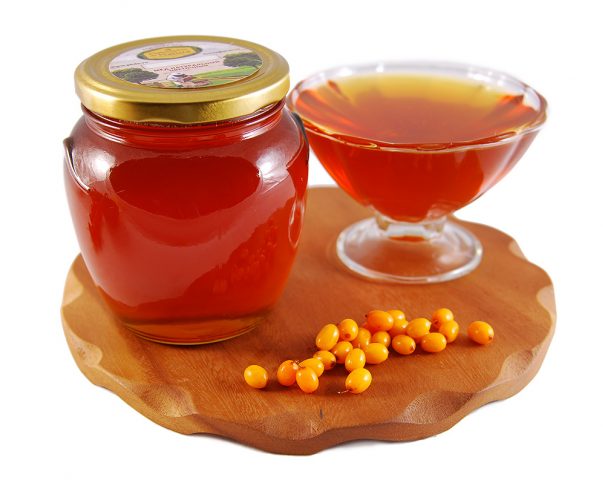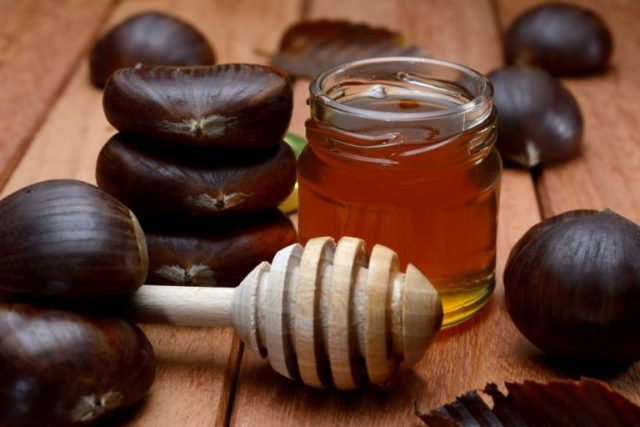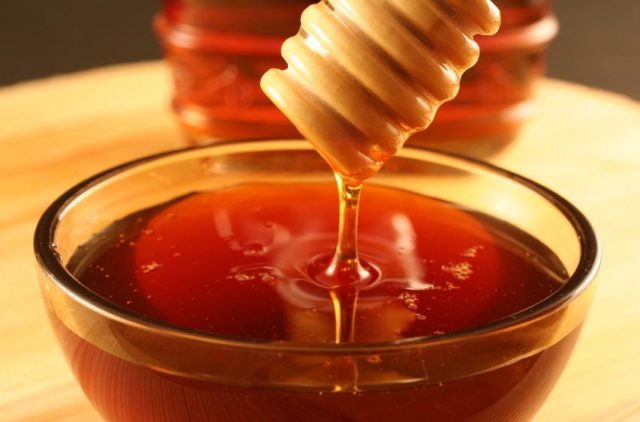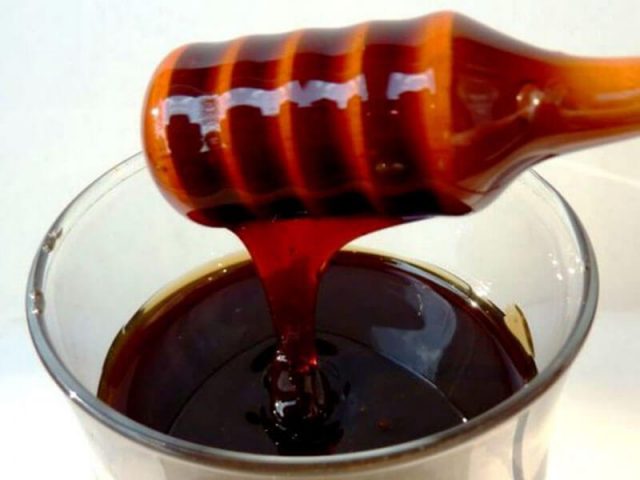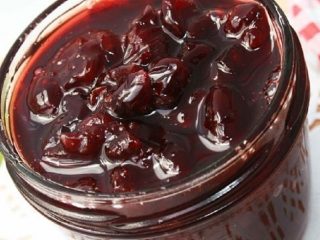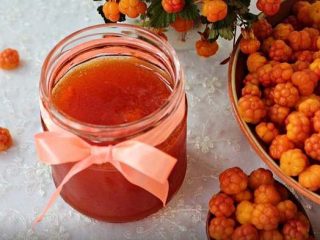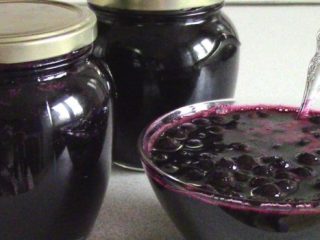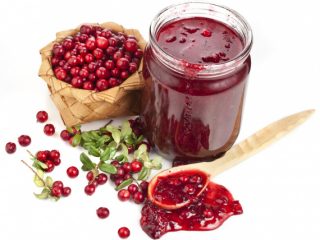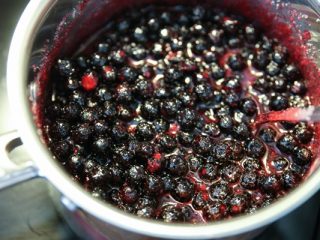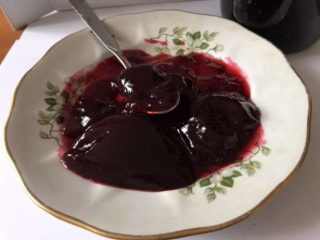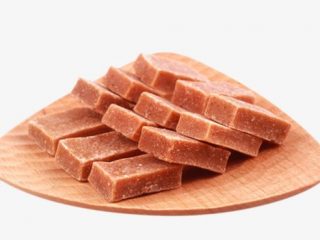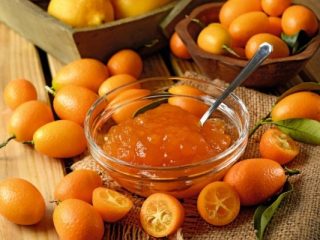Content
- 1 How to get honey from chestnut
- 2 What does chestnut honey taste like?
- 3 How to spot fake chestnut honey
- 4 What are the benefits of chestnut honey?
- 5 What diseases does it help with?
- 6 How to take chestnut honey
- 7 The use of chestnut honey in cosmetology
- 8 Contraindications to chestnut honey
- 9 Terms and conditions of storage
- 10 Conclusion
- 11 Reviews of chestnut honey
Chestnut honey is an unusual but very interesting delicacy with many beneficial properties. Since many people have not even heard of chestnut nectar honey, it is interesting to consider the composition of the product and learn about its valuable properties.
How to get honey from chestnut
The process of producing chestnut honey differs little from the production of other honey varieties. The raw material for the product is nectar collected by bees from the flowers of the chestnut tree. In the process of transferring chestnut pollen and inside the hive, the bees process the raw material, ferment it, and remove excess moisture. Ultimately, a viscous sweet substance, saturated with vitamins, organic acids and biologically active components, remains in the sealed honeycombs, after which beekeepers collect honey and prepare it for sale.
- It is customary to distinguish 2 varieties of chestnut - seed and horse chestnut.If the second species is quite widespread in Russia, then the cultivated chestnut grows only in the southern regions of the country, mainly near Sochi, on the Black Sea coast.
- Sweet honey is produced from nectar collected from both varieties of chestnuts. But the delicacy obtained by processing the raw materials of seed chestnuts is valued more highly, so the most beneficial chestnut honey is available on the market in small quantities and is quite expensive.
- The difficulty of obtaining honey is that the flowering of seed chestnut lasts only 2 weeks. During this time, the bees manage to collect pollen and nectar in very limited quantities - this makes the delicacy even more scarce.
Thus, one of the unique features of chestnut honey is its rarity; you can’t find this delicacy in every market or store.
What does chestnut honey taste like?
Another distinctive feature of this healthy treat is its specific taste. Chestnut honey is very tart and distinctly bitter, due to which it slightly resembles wood, and its aroma is sharp and unusual.
Despite the fact that chestnut delicacy has its fans, due to its unusual taste, most people use it only for treatment and in limited quantities.
How to spot fake chestnut honey
Since the delicacy made from chestnut nectar is in short supply, low-quality fakes can often be found on the market. However, it is quite easy to distinguish a real product from a fake one.
- First of all, chestnut delicacy in Russia can only be supplied from the Krasnodar region or from abroad.If the seller claims that honey was collected in the middle zone, it is undoubtedly a fake.
- The taste and smell of an unusual product should be noticeably different from traditional varieties and have a pronounced bitterness. But at the same time, after heating above 50 ° C, natural chestnut honey should lose its bitter notes; if this does not happen, it can be argued that the product is fake.
- A characteristic feature of the chestnut delicacy is that it retains a liquid consistency for a long time and does not become sugary even after a year of storage.
- In the photo of chestnut honey you can see that the color of the product is much darker than the delicacies of ordinary varieties; it usually has a dark brown tint.
You can check the naturalness of a product using simple home experiments. For example, if, when mixed with a drop of iodine, the delicacy turns white and produces a dark sediment, this indicates the presence of starch in the honey. To check the product for sugar impurities, you can put a little honey on a piece of paper and set it on fire; unlike sugar, the natural chestnut product will not burn.
What are the benefits of chestnut honey?
The unusual delicacy contains a large amount of valuable substances - vitamins C and A, riboflavin and thiamine, as well as iron, iodine, magnesium, natural acids and natural enzymes. Due to this, the product has the following properties valuable for the human body:
- anti-inflammatory — consuming chestnut delicacy is useful for colds, diseases of the respiratory system and nasopharynx, and for any inflammation of the digestive and genitourinary systems;
- Aantiseptic — a product made from chestnut nectar is suitable for external use and for treating wounds, cuts, inflammations and irritations on the skin;
- vascular strengthening — consuming delicacies has a beneficial effect on the state of the heart and vascular system, the product improves brain function and prevents the development of dangerous ailments;
- rejuvenating — the delicacy not only removes all toxins, heavy metals, waste and radioactive substances from the body, but also starts the process of cell renewal, thereby maintaining natural youth;
- immunostimulating — consuming the product is useful in cases of vitamin deficiency and weakened immunity, since it helps the body recover from illnesses and infections, and also serves as a preventive measure for new diseases.
Another useful property of the chestnut product is that it has a beneficial effect on the secretory functions of the body. The delicacy brings a positive effect if you are prone to constipation and swelling, has a choleretic effect and improves the functioning of the excretory system.
Beneficial properties of chestnut honey for men
Chestnut honey is especially beneficial for men; it has a beneficial effect on the reproductive system. The product accelerates blood circulation, and this helps improve potency and increases the ability to conceive.
The anti-inflammatory properties of the treat help fight inflammation of the prostate gland - honey relieves swelling and soothes pain, allowing you to quickly cope with an exacerbation. Traditional medicine considers the chestnut product to be a good natural aphrodisiac, especially in combination with walnuts.
Benefits of chestnut honey for women
This unusual delicacy has a good effect on the nervous system of women - it reduces stress levels, improves sleep, and regulates mood swings. Therefore, consuming chestnut treats is useful during menstruation and menopause; the product helps to cope with unpleasant symptoms more easily and improves overall tone.
Also, chestnut product is highly valued in cosmetology. As part of homemade masks and wraps, the product helps get rid of cellulite, improves skin condition and helps strengthen weak hair.
Beneficial properties of chestnut honey for children
The benefits and harms of chestnut honey for babies are controversial. If well tolerated, the natural remedy will effectively strengthen the immune system and allow you to quickly cure a cough or cold. However, honey can be offered to a child for the first time only after 3 years of age; the treat often causes allergies and can harm the baby’s body.
In addition, the chestnut product, due to its unusual bitter taste, may simply not be liked by the child. In this case, it is better to replace it with other types of honey or offer it to the baby along with drinks that will improve the taste of the product.
What diseases does it help with?
Traditional medicine recommends consuming chestnut delicacy for many diseases. The product can improve the body's condition:
- for gastritis, chronic stomach ulcers and liver diseases - the delicacy has a cleansing effect and also fights inflammatory processes, therefore quickly improves well-being;
- for influenza, ARVI, sore throat, tonsillitis and cough, the product reduces the temperature and eliminates symptoms of intoxication of the body, relieves nasal congestion and promotes sputum discharge;
- for bronchitis and pneumonia, honey not only softens irritated airways and reduces pain, but also prevents the development of bacterial infection;
- for varicose veins, atherosclerosis and thrombophlebitis, the delicacy strengthens the walls of blood vessels and accelerates blood circulation, and also thins the blood;
- In case of disorders of the nervous system, the product helps to cope with fatigue and normalizes sleep, gives vigor and increases physical endurance.
In small dosages and with the permission of a doctor, chestnut honey can be beneficial even for diabetes. Despite the fact that it contains a lot of carbohydrates, they mainly consist of fructose, and this substance does not lead to jumps in sugar levels.
How to take chestnut honey
Daily dosages of the chestnut product depend on the purpose for which it is used. For prevention and general strengthening of the body, it is recommended to eat no more than 2 large spoons per day. If honey is used to treat colds or digestive ailments, the dosage can be increased and you can eat up to 100 g of honey per day, dividing this amount into 3 doses. It is best to consume chestnut honey on an empty stomach, so its beneficial properties are better absorbed.
For children, the norms for consuming treats should be reduced by 2 times compared to adult dosages.For prevention, a child can be given no more than 1 large spoon of the product per day, and for medicinal purposes - up to 50 g of honey per day.
The use of chestnut honey in cosmetology
The anti-inflammatory and nutritional properties of this unusual product are used in the cosmetic field. Even when consumed internally, chestnut delicacy brings great benefits to hair and skin. But it can also be used externally - to make masks and healing wraps.
For the skin, the beneficial properties of the delicacy are especially in demand for dry types of epidermis. The chestnut delicacy nourishes the skin with vitamins and organic acids, increases its elasticity and smoothness, and helps eliminate the first wrinkles. It is very useful to make honey masks if the skin is prone to irritation and acne; the product quickly relieves inflammation and makes the skin much cleaner.
As part of wraps, chestnut delicacy activates metabolic processes in tissues in problem areas. The beneficial effect is that fat deposits are quickly reduced, and the skin is tightened and gets rid of unpleasant bumps and irregularities.
The vitamins in chestnut delicacy have a beneficial effect on hair follicles. The use of honey masks helps stop hair loss and also makes curls more silky and manageable.
Contraindications to chestnut honey
The benefits and harms of chestnut honey depend on the individual characteristics of the body. You cannot use this medicinal product:
- if you are allergic to pollen or bee products;
- with exacerbation of pancreatitis;
- in severe forms of diabetes.
You should try the treat for the first time in minimal quantities - this will ensure that there is no negative reaction to the product.
Terms and conditions of storage
Chestnut honey must be kept in a tightly closed glass jar. The delicacy is best preserved at room temperature up to 20 degrees, but it should be protected from direct sunlight and high humidity. The shelf life for the product is approximately 2 years under proper storage conditions.
Conclusion
Chestnut honey is a valuable and quite rare product with a specific taste. When consumed in moderation, the treat helps relieve cold symptoms and also helps cure stomach and vascular diseases.
